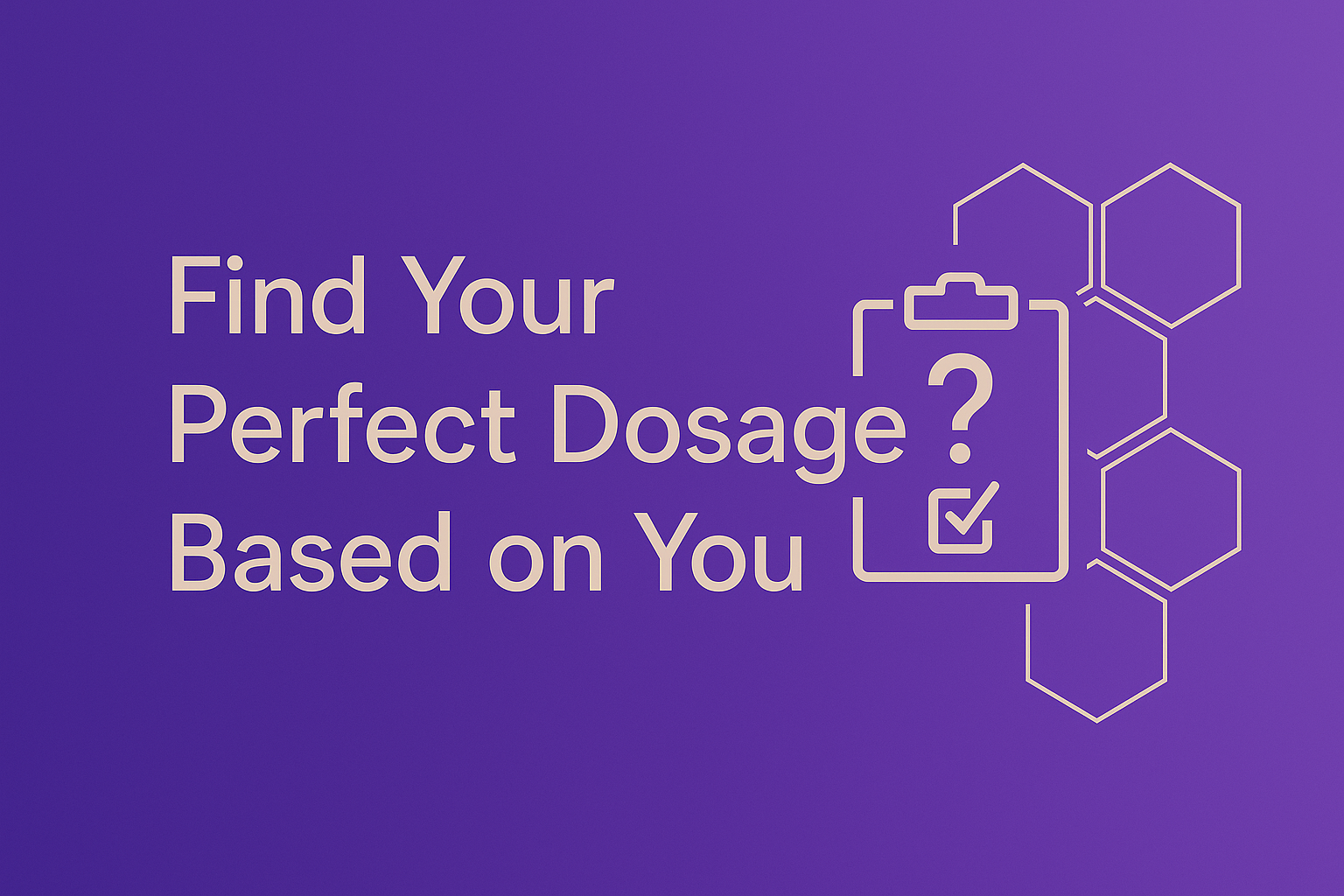Can You Take Vitamins on an Empty Stomach? The Facts You Need to Know

Wondering if you can take vitamins on an empty stomach? The answer varies depending on the vitamin. Water-soluble vitamins, such as vitamin C and B vitamins, are best taken on an empty stomach for optimal absorption. On the other hand, fat-soluble vitamins, including vitamins A, D, E, and K, need dietary fats for better absorption and should be taken with food. This article will help you understand the best practices for taking your vitamins effectively and safely, including whether you can take vitamins on an empty stomach.
Key Takeaways
-
Water-soluble vitamins, such as vitamin C and B vitamins, are best absorbed on an empty stomach, while fat-soluble vitamins (A, D, E, K) require dietary fats for optimal absorption.
-
Taking certain vitamins on an empty stomach can lead to side effects like nausea and stomach upset; it’s important to know which vitamins can be taken without food.
-
A well-balanced diet is essential, as relying solely on vitamin supplements can result in nutritional gaps and health risks.
Understanding Vitamin Absorption

Understanding how the body absorbs vitamins can help you adopt the best practices for taking them. Vitamins are absorbed in the small intestine, where digestive enzymes break them down further for absorption. The presence or absence of food in your stomach can greatly affect nutrient absorption. For instance, taking vitamins without food can affect the absorption of some vitamins, leading to suboptimal results and, in some cases, side effects.
The body requires nine water-soluble vitamins and four fat-soluble vitamins. Each type of vitamin has specific needs for proper absorption. While some vitamins thrive on an empty stomach, others require the presence of dietary fats or other nutrients to be effectively absorbed. Properly taking each vitamin can enhance absorption, minimise side effects, and maximise supplement efficacy.
Water Soluble Vitamins
Water-soluble vitamins, such as vitamin C and B vitamins, are unique in that they do not require food for absorption. In fact, they are often better absorbed on an empty stomach. This is because water-soluble vitamins dissolve in water, allowing them to be quickly and efficiently absorbed by the small intestine without the need for any additional dietary components.
Consuming water-soluble vitamins like vitamin C or B vitamins without food can boost their absorption and effectiveness. These vitamins are not stored in the body and need to be replenished regularly, making it essential to understand the best practices for their intake.
Taking these vitamins on an empty stomach, ideally in the morning, can ensure they are effectively absorbed and utilised by the body.
When it comes to NMN, some experts suggest that taking NMN on an empty stomach may enhance its absorption and efficacy, as the absence of food can allow for quicker and more direct uptake into the bloodstream. However, others argue that consuming NMN with a light snack or meal can help mitigate any potential stomach discomfort or nausea, which can occur when taking supplements without food.
Ultimately, the best approach may vary from person to person. It is advisable to start with a lower dose of NMN to see how your body reacts and then adjust your intake based on your comfort and any observed effects. Consulting with a healthcare provider can also provide personalised guidance on how to incorporate NMN into your supplement routine for optimal results. For assistance in choosing the best NMN product, consider the available options on NMN Bio.
Fat Soluble Vitamins
Unlike their water-soluble counterparts, fat-soluble vitamins, including A, D, E, and K, require fat for optimal absorption. These vitamins are absorbed along with dietary fats and are stored in the body’s fatty tissues. This means that without the presence of fat, these vitamins may not be effectively absorbed, leading to potential deficiencies.
Fat-soluble vitamins should be taken with meals that contain healthy dietary fats, such as those found in nuts, avocados, or dairy products. This practice ensures that these essential nutrients are properly absorbed and utilised by the body. Understanding the specific needs of fat-soluble vitamins allows you to optimize your supplement routine and prevent absorption issues.
Potential Risks of Taking Vitamins on an Empty Stomach

While some vitamins can be taken on an empty stomach, doing so with others can lead to negative side effects. Common issues include nausea and upset stomach, which can be particularly unpleasant. Considering your food intake when taking vitamins can help you avoid discomfort and potential health risks.
Taking vitamins without food can also lead to excessive intake of certain nutrients, which may be harmful. For instance, some vitamins can stimulate stomach acid production, leading to nausea and other gastrointestinal symptoms. Minimising these side effects involves knowing which vitamins can be taken on an empty stomach and which should be consumed with food.
Nausea and Vomiting
One of the most common side effects of taking vitamins on an empty stomach is nausea and vomiting. This can happen because certain vitamins can upset the stomach or alter its function, leading to feelings of nausea. For example, vitamins that delay stomach emptying can cause discomfort and nausea after consumption.
Water-soluble vitamins, in particular, can irritate the stomach when taken without food, leading to potential adverse effects. If nausea occurs after taking vitamins, consider whether they were taken on an empty stomach and avoid taking your vitamins if necessary.
Stomach Upset and Discomfort
In addition to nausea, taking vitamins on an empty stomach can lead to various gastrointestinal issues, including discomfort and irritation. Common side effects include stomach upset, bloating, gas, and cramping. These symptoms can be particularly pronounced with certain vitamins that are more prone to causing irritation.
To minimise these side effects, consider taking vitamins with food or consulting with a healthcare provider for advice tailored to your individual needs. Consuming vitamins with a small meal or snack can alleviate stomach discomfort and improve absorption.
Vitamins That Can Be Taken on an Empty Stomach
Despite the potential risks, certain vitamins can be effectively taken on an empty stomach. Water-soluble vitamins, such as vitamin C and B vitamins, are more effectively absorbed in the small intestine when consumed without food. This makes them suitable for morning intake without a meal.
Taking these vitamins on an empty stomach can enhance their absorption and ensure that your body gets the essential nutrients it needs. If you’re looking to optimise your vitamin intake, understanding which vitamins can be taken without food can help you create a more effective supplement routine.
Why Some Vitamins Should Be Taken With Food
While some vitamins can be taken on an empty stomach, others require food for proper absorption. Fat-soluble vitamins, such as A, D, E, and K, necessitate dietary fats for optimal absorption. Combining these vitamins with healthy fats improves their absorption and effectiveness.
Taking vitamins without food can also irritate the stomach and lead to gastrointestinal symptoms. Consuming a high dose of vitamins on an empty stomach can lead to significant stomach discomfort.
Understanding which vitamins need to be taken with food and how to incorporate them into your diet can help avoid these issues.
Fat Soluble Vitamins
Fat-soluble vitamins like A, D, vitamin E, and K are more effectively absorbed when consumed with dietary fats. These vitamins are better absorbed when accompanied by healthy dietary fats, such as those found in nuts, avocados, and dairy products. This practice ensures that these essential nutrients are properly utilised by the body and can provide their full benefits.
For optimal absorption, fat-soluble vitamins should be taken after meals that contain fat for maximum absorption. Incorporating these vitamins into your diet with the right foods enhances their effectiveness and prevents absorption issues.
Multivitamins and Prenatal Vitamins
Multivitamins and prenatal vitamins can cause feelings of nausea when consumed on an empty stomach due to their concentrated nutrients. High doses of some vitamins, like vitamin C and iron, can exacerbate nausea if consumed on an empty stomach. To alleviate these issues, taking multivitamins or prenatal vitamins with food can help improve nutrient absorption and reduce stomach discomfort, especially for those experiencing morning sickness.
Both water-soluble and fat-soluble vitamins are typically included in prenatal vitamins, making it essential to take them with meals. This practice ensures that all the included vitamins are properly absorbed and utilised by the body, providing the maximum benefit to both mother and baby.
Tips for Taking Vitamins Effectively

To get the most out of your vitamin supplements, it’s important to follow a few key tips:
-
Maintain a consistent schedule for vitamin intake to enhance the likelihood of daily adherence.
-
Keep a record of your vitamin intake to assist in tracking your health and identifying any deficiencies.
-
Select dietary supplements from well-known brands or those recognised by quality assurance organisations to ensure you’re taking supplements of high-quality products.
By incorporating these tips into your routine, you can maximise the benefits of your vitamins and take vitamin to support your overall health.
Timing Your Vitamins
Timing your vitamins can enhance their effectiveness and minimise potential side effects. For example, taking vitamin B12 in the morning can enhance its energising effects and help avoid sleep disturbances. Water-soluble vitamins like vitamin C and B12 are best consumed on an empty stomach, preferably in the morning, for optimal absorption.
Multivitamins and prenatal vitamins should be taken with a snack or meal to improve nutrient uptake. Incorporating the right timing for multivitamin vitamins into your routine greatly enhances their health benefits.
Pairing Vitamins With Meals
Pairing vitamins with meals can significantly increase their absorption and effectiveness. Taking vitamin D with a meal, especially one that has fat, enhances its absorption. This practice ensures that the vitamins are properly absorbed and utilised by the body.
Incorporating multiple vitamins into different meals throughout the day can help optimise their absorption and provide consistent nutrient intake. Pairing vitamins with certain foods enhances their benefits and supports overall health.
What Happens If You Rely Solely on Vitamins Instead of Food?

Relying solely on vitamins without a balanced diet can lead to significant nutritional gaps and various health issues. Vitamins cannot fully replace the nutrients obtained from a balanced diet. Relying on vitamins as the primary nutrient source can result in insufficient intake of essential nutrients from whole foods.
Overlooking food sources can increase the risk of obesity and related metabolic disorders. The best source of nutrients is whole foods, which provide a diverse range of vitamins and minerals that cannot be fully substituted by supplements.
Nutritional Gaps
Consuming a diverse range of healthy foods helps ensure adequate intake of vitamins and minerals. This approach is very effective for meeting nutritional needs. If one relies solely on vitamins, they may be deficient in protein, fibre, and other vital components. Vitamin supplements for seniors typically contain more vitamin D, B12, calcium supplements, and mineral supplements, but they cannot replace the nutrients found in a balanced diet.
Incorporating a variety of foods into your diet ensures you eat all the essential nutrients that have been eaten for optimal health.
Health Risks
Relying solely on vitamins can lead to significant nutritional gaps since vitamins alone cannot replace the diverse nutrients provided by whole foods. Nutritional deficiencies can lead to various health issues, including weakened immune function, impaired cognitive abilities, and increased risk of chronic diseases.
A diet rich in fruits, vegetables, whole grains, and proteins is crucial for well-being and cannot be fully replaced by vitamin supplements and other dietary supplements. By maintaining a balanced diet, you can support your immune system, cognitive function, and overall good health.
Summary
In conclusion, understanding the best practices for taking vitamins is essential for optimising their benefits and avoiding potential side effects. While some vitamins can be taken on an empty stomach, others require food for proper absorption. By knowing which vitamins need food and which don’t, you can create a more effective supplement routine.
Remember, vitamins are meant to complement a balanced diet, not replace it. By incorporating these tips into your daily routine, you can ensure you’re getting the most out of your vitamins and supporting your overall health.
Frequently Asked Questions
Can I take vitamin C on an empty stomach?
Yes, you can take vitamin C on an empty stomach, as it is a water-soluble vitamin that is effectively absorbed in this state.
Why do I feel nauseous after taking my multivitamin?
Feeling nauseous after taking a multivitamin is often due to taking it on an empty stomach, as the concentrated nutrients can upset your system. To mitigate this, try taking your multivitamin with food.
Are there any vitamins that should always be taken with food?
Yes, fat-soluble vitamins A, D, E, and K should always be taken with meals that contain dietary fats to ensure optimal absorption.
Can relying solely on vitamins replace a balanced diet?
Relying solely on vitamins cannot replace a balanced diet, as whole foods provide essential nutrients and a variety of compounds that supplements do not. A well-rounded diet is crucial for optimal health.
How can I improve the absorption of my vitamin D supplement?
To enhance the absorption of your vitamin D supplement, take it with a meal that includes healthy fats. This pairing is key to maximising its effectiveness.
Curious about how and when to take your NMN Bio supplements?
Get a simple, personalised guide in under a minute. For further assistance, feel free to contact us.
Researched and reviewed by Dr Elena Seranova, Ph.D.
Dr Seranova holds a master's degree in Translational Neuroscience from the University of Sheffield, UK, and a Ph.D in Stem Cell Biology and Autophagy from the University of Birmingham, UK. She is a published author in multiple peer-reviewed journals, including Cell Reports and Developmental Cell.
LEARN MORE!
Explore the similarities and differences between NAD+ and NMN, two significant molecules in health and wellness, and how they function within our bodies.





